Best Companion Plants For Cucumbers In Containers
Best Companion Plants for Cucumbers in Containers
Cucumbers are a popular summer vegetable that can be grown in a variety of ways, including in containers. When growing cucumbers in containers, it is important to choose the right companion plants. Companion planting is the practice of planting certain plants together to benefit each other. By planting companion plants with cucumbers, you can improve their growth, flavor, and pest resistance.
Here are some of the best companion plants for cucumbers in containers:
- Beans and peas: Legumes, such as beans and peas, are nitrogen-fixing plants. This means that they can convert atmospheric nitrogen into a form that other plants can use. Nitrogen is an essential nutrient for plant growth, so planting cucumbers with legumes can help to improve their growth and yield.
- Corn: Corn can provide a natural trellis for cucumbers to climb. This can help to save space in your container garden and keep the cucumbers off the ground, where they are less likely to be affected by pests and diseases.
- Marigolds: Marigolds are known for their insect-repelling properties. Planting marigolds near cucumbers can help to deter pests such as cucumber beetles, aphids, and squash bugs.
- Nasturtiums: Like marigolds, nasturtiums are also known for their insect-repelling properties. They can also help to attract beneficial insects, such as ladybugs and lacewings, which can help to control pests.
- Dill: Dill is a fragrant herb that can attract beneficial insects, such as bees and butterflies. These insects can help to pollinate your cucumbers, which can lead to a better harvest.
- Lettuce: Lettuce is a cool-season crop that can help to shade the roots of cucumbers and keep them cool. This can help to prevent cucumbers from developing blossom end rot, a common problem that can occur when cucumbers are exposed to hot, dry weather.
- Carrots: Carrots are another cool-season crop that can help to shade the roots of cucumbers. They also have different nutrient requirements than cucumbers, so they will not compete for nutrients.
- Beets: Beets are a deep-rooted crop that can help to improve the drainage of your container soil. This can help to prevent cucumbers from developing root rot, a common problem that can occur when cucumbers are grown in poorly-drained soil.
- Sunflowers: Sunflowers are tall plants that can provide shade for cucumbers during the hottest part of the day. They can also help to attract pollinators, which can help to improve your cucumber harvest.
Here are some plants that you should avoid planting near cucumbers:
- Brassicas: Plants in the brassica family, such as broccoli, cabbage, and cauliflower, can compete with cucumbers for nutrients and water. They can also be susceptible to the same diseases as cucumbers.
- Melon: Melons and cucumbers are both members of the Cucurbitaceae family. Planting them together can increase the risk of disease transmission.
- Potatoes: Potatoes and cucumbers can compete for nutrients and water. They can also be susceptible to the same diseases.
- Sage: Sage can inhibit the growth of cucumbers.
- Fennel: Fennel can also inhibit the growth of cucumbers.
When choosing companion plants for cucumbers, it is important to consider the size of the plants, their nutrient requirements, and their susceptibility to pests and diseases. By planting compatible plants together, you can create a healthy and productive container garden.
Cucumbers are a delicious and versatile vegetable that can be grown in a variety of ways, including in containers. When growing cucumbers in containers, it is important to choose the right companion plants. Some good companion plants for cucumbers include:
- Beans and peas: These legumes fix nitrogen in the soil, which can help to improve the growth of cucumbers.
- Corn: Corn can provide a natural trellis for cucumbers to climb.
- Marigolds: Marigolds repel pests, such as aphids and cucumber beetles.
- Dill: Dill attracts beneficial insects, such as bees and butterflies, which can help to pollinate cucumbers.
- Nasturtiums: Nasturtiums also repel pests, and their flowers can be eaten.
For more information about companion plants for cucumbers in containers, you can visit Gardenia Inspiration. This website provides a comprehensive list of companion plants, as well as information about the benefits of companion planting.
FAQ of companion plants for cucumbers in containers
- What are some good companion plants for cucumbers in containers?
Some of the best companion plants for cucumbers in containers include:
- Beans and peas: These legumes are nitrogen-fixing plants, which means they add nitrogen to the soil. This can help to improve the growth and productivity of your cucumbers.
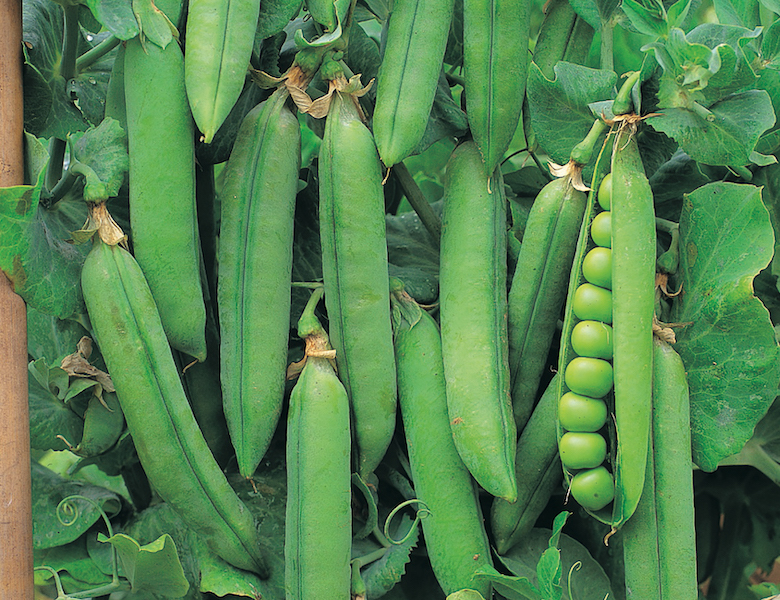
- Corn: Corn can provide a natural trellis for cucumbers to climb. This can help to save space in your container garden and keep your cucumbers off the ground, where they are less likely to be damaged by pests or diseases.

- Marigolds: Marigolds are known for their insect-repelling properties. They can help to deter pests such as aphids, beetles, and squash bugs from your cucumbers.
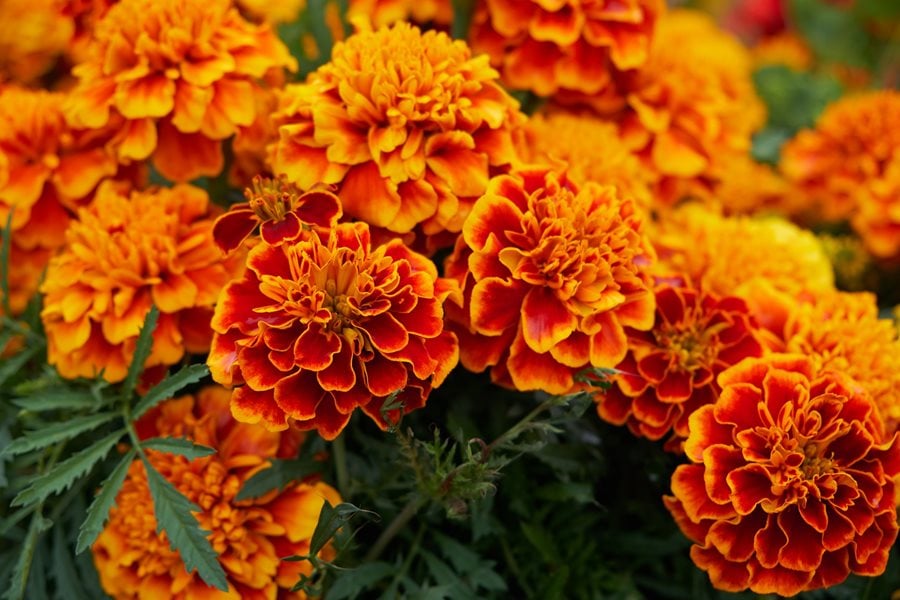
- Nasturtiums: Nasturtiums are another good choice for insect-repelling companion plants. They can also attract beneficial insects such as ladybugs and pollinators.

- Dill: Dill is a fragrant herb that can attract pollinators to your cucumber plants. It can also help to improve the flavor of your cucumbers.
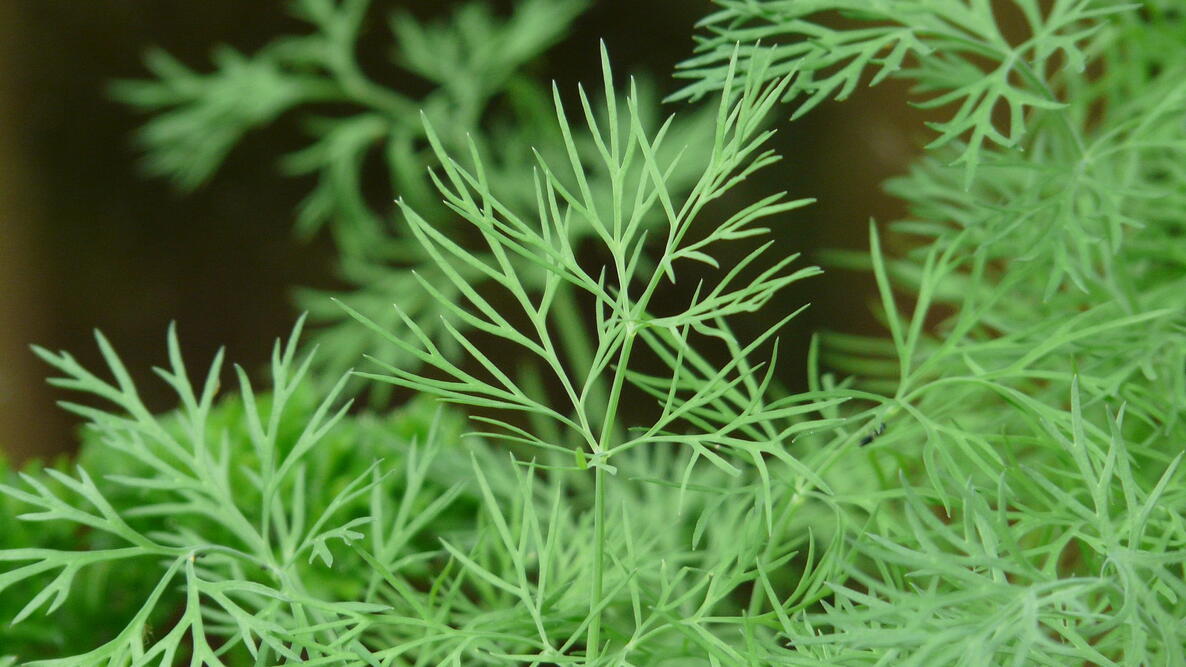
- What plants should I avoid planting near cucumbers in containers?
Some plants that you should avoid planting near cucumbers in containers include:
- Brassicas: Plants in the brassica family, such as broccoli, cabbage, and Brussels sprouts, can compete with cucumbers for nutrients and water.

- Melons: Melons and cucumbers are both members of the cucurbit family, and they can cross-pollinate with each other. This can result in cucumbers that have a poor flavor.
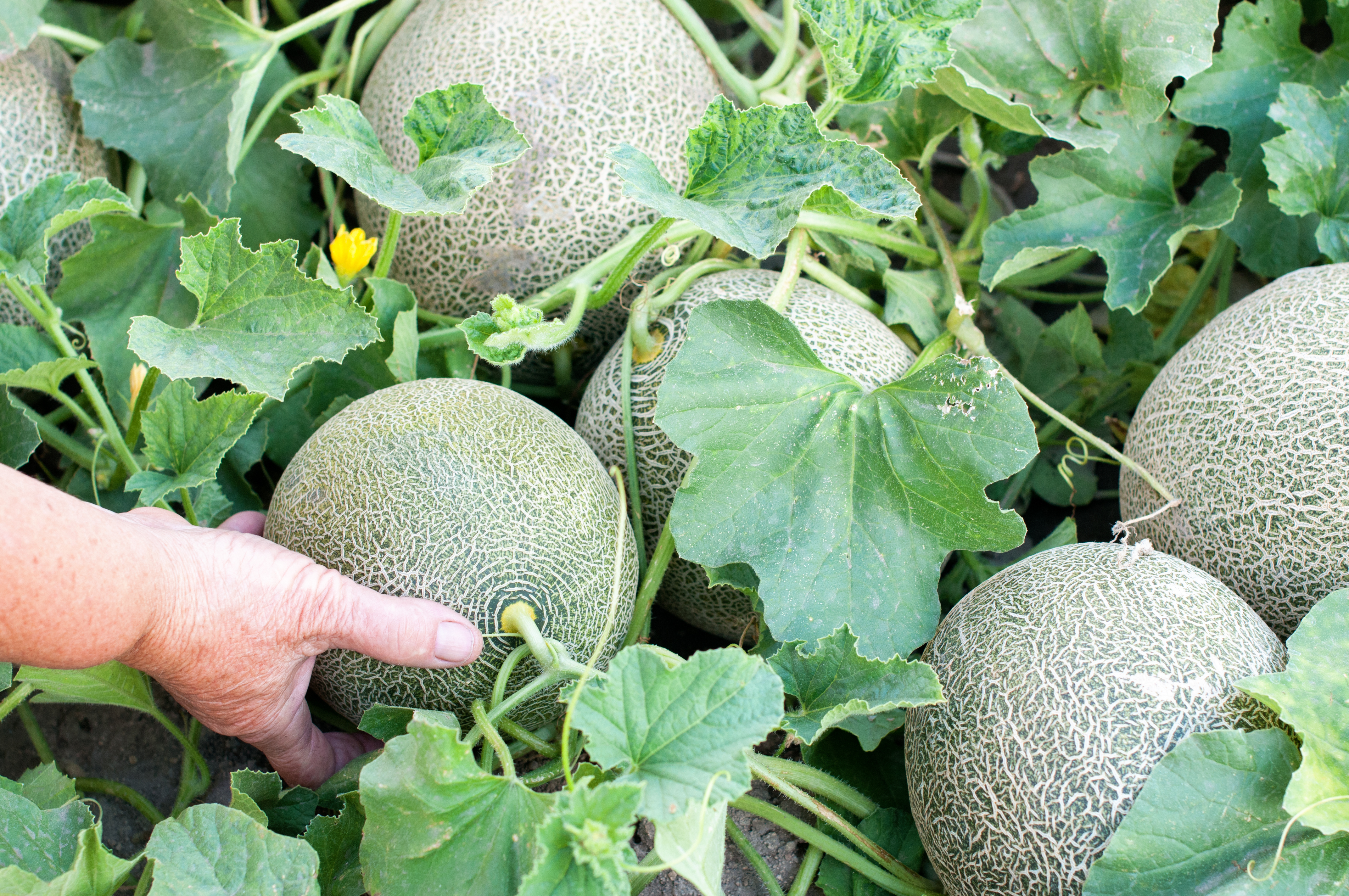
- Potatoes: Potatoes can harbor a fungus that can cause wilt disease in cucumbers.

- Sage: Sage can stunt the growth of cucumbers.

- Fennel: Fennel can release a chemical that can inhibit the growth of cucumbers.
- How far apart should I plant cucumbers in containers?
Cucumbers need plenty of space to grow, so you should plant them at least 2 feet apart in containers. If you are growing vining cucumbers, you will need to provide them with a trellis or support system.
- What kind of soil do cucumbers need in containers?
Cucumbers prefer a well-drained soil that is rich in organic matter. You can improve the drainage of your potting mix by adding perlite or vermiculite. You can also add compost or manure to the potting mix to increase the organic matter content.
- How much water do cucumbers need in containers?
Cucumbers need regular watering, especially during hot weather. Water your cucumbers deeply so that the water reaches the roots. You may need to water your cucumbers daily, or even twice a day, during hot, dry weather.
Image of companion plants for cucumbers in containers
- Carrots: Carrots help to repel cucumber pests such as aphids and cucumber beetles.

- Herbs: Herbs such as dill, mint, and basil can help to deter pests and attract beneficial insects to your cucumber plants.

- Marigolds: Marigolds are known for their insect-repelling properties and can help to protect your cucumbers from aphids, whiteflies, and other pests.

- Pole beans: Pole beans are nitrogen-fixing plants that can help to improve the soil quality for your cucumbers. They can also provide shade for your cucumbers, which can help to prevent them from developing sunburn.
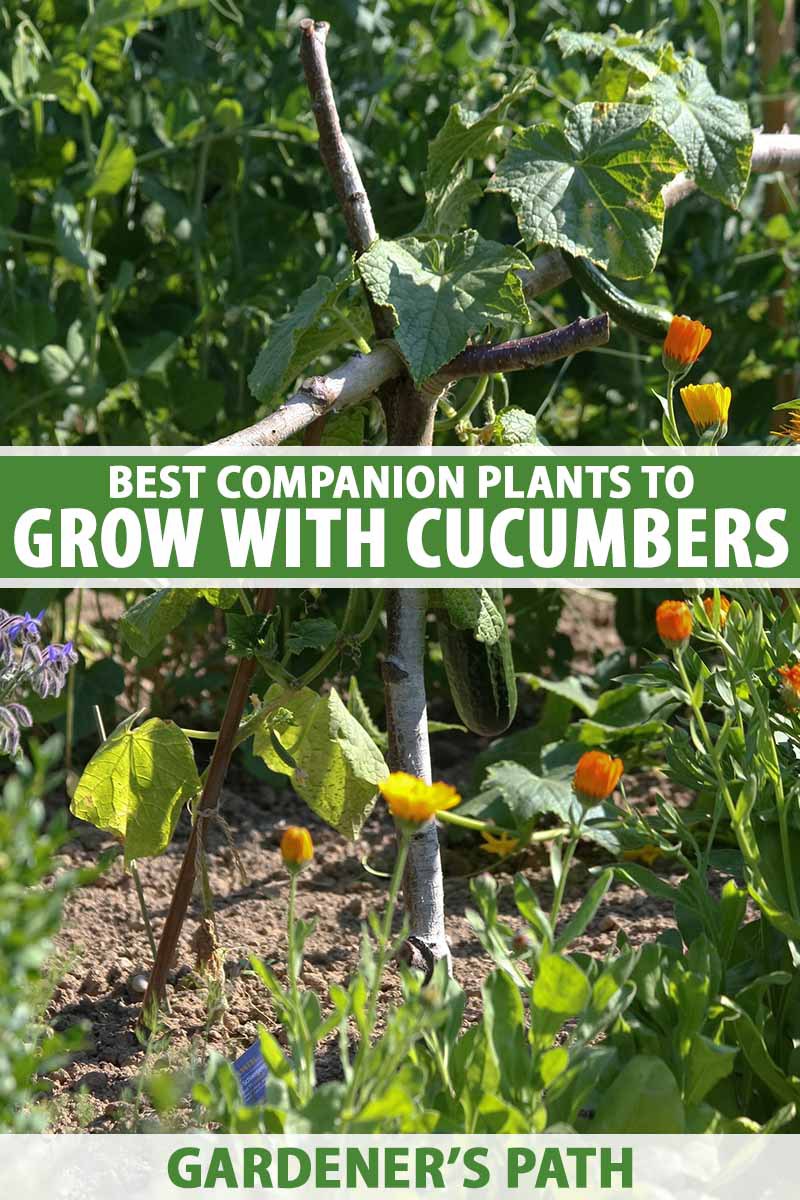
- Sunflowers: Sunflowers can help to attract beneficial insects to your cucumber plants, such as ladybugs and parasitic wasps. They can also provide shade for your cucumbers, which can help to prevent them from developing sunburn.

Post a Comment for " Best Companion Plants For Cucumbers In Containers"